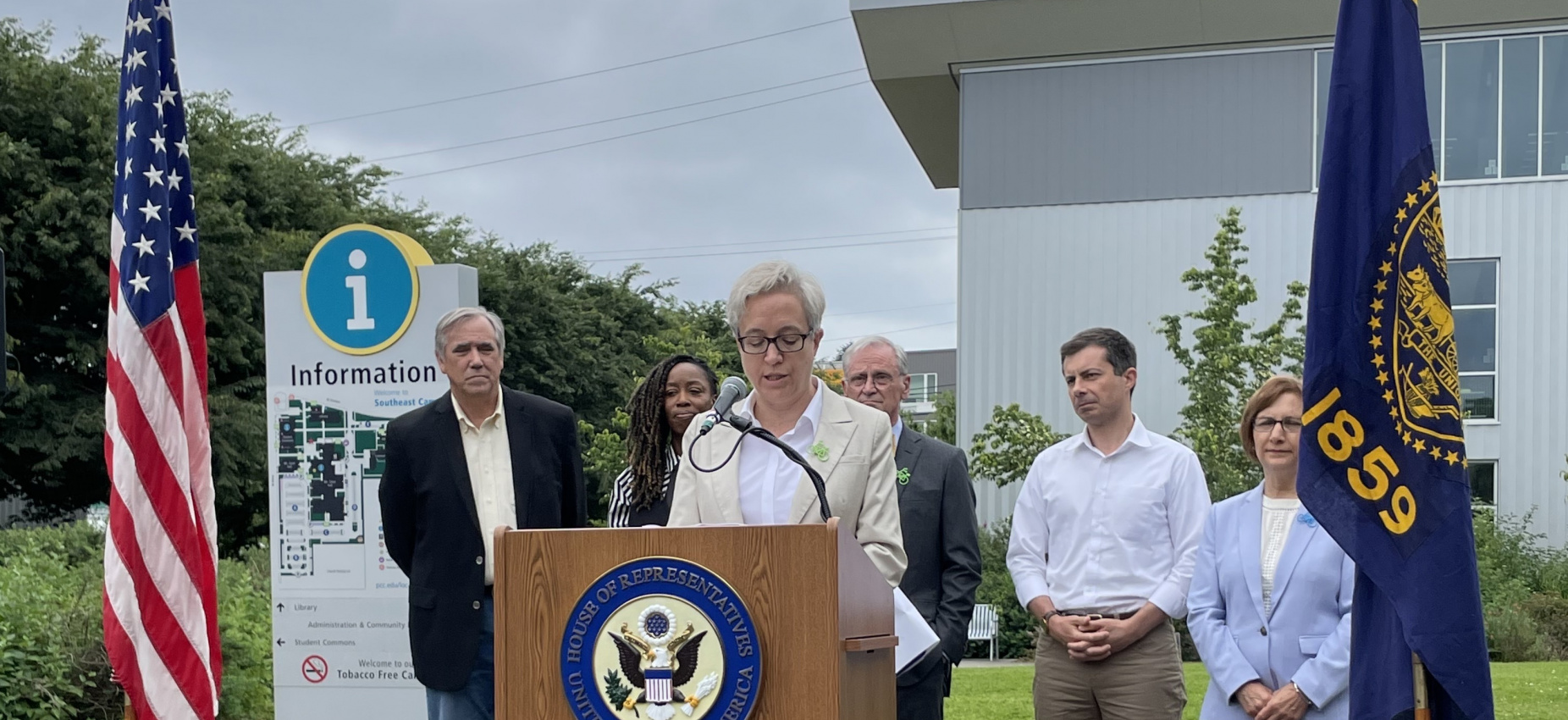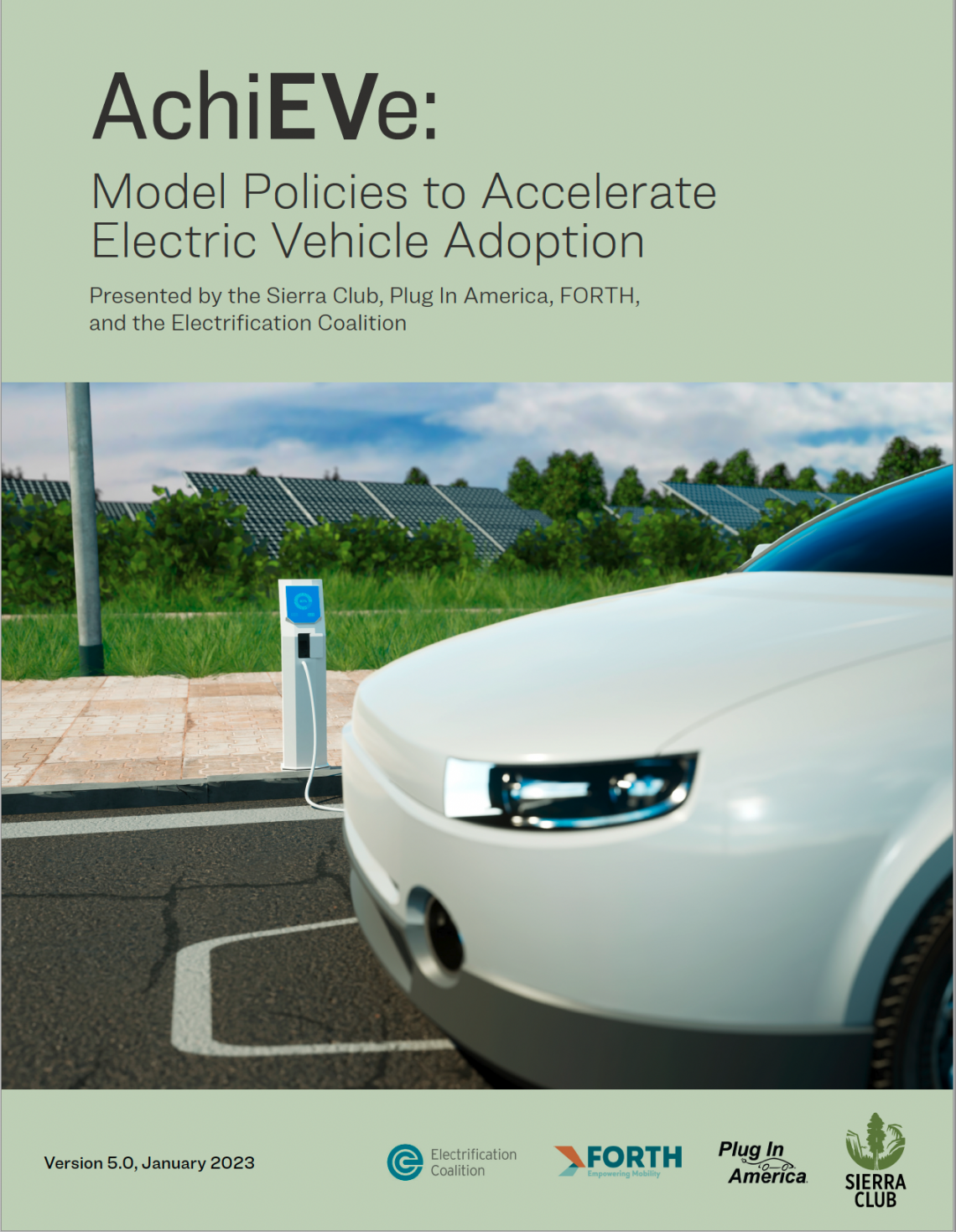State EV Policy
Advocating Equitable Access to EVs

Advocating Equitable Access to EVs
Since its inception, Forth has been leading advocacy to put Oregon at the forefront of transportation electrification nationwide. More recently, we have expanded this work to Washington and a handful of other states.
Increase Access to Electric Cars
- Promote state rebates for electric cars
- State funding and policy support to provide shared electric mobility services for affordable housing residents and social service organizations
- State and utility investment in brand-neutral EV outreach and education efforts to make more Americans aware of electric vehicles and their benefits
- Support programs to help gig drivers switch to EVs in ways that benefit them economically, rather than imposing additional costs and hardships, particularly if states are adopting ‘clean miles standards’
Increase Access to Charging
- State funding and policies that support the funding for charging infrastructure by utilities
- State funding and support for technical assistance for charging
Increase Access to Emerging Modes
- Promote state funding, incentives and other policy that supports privately owned and shared electric micromobility
- Promote state adoption of clear e-bike categories and rules
- Reduce regulatory barriers to use of three-wheel “autocycles”
- Promote state policy that accelerates the transition to electric school buses, with a particular focus on repowers
- Promote state policy that transitions transportation funding to a system based on pollution, congestion, and miles traveled
- Increase funding and policy support to electrify American farm equipment
Coalitions & Associations
Forth works with a broad range of stakeholders, coalitions and associations to build a broad base of support for smart e-mobility policy. We support a bipartisan, bicameral Clean Transportation Caucus in Oregon and Washington.
Recent Successes
Oregon
- Forth introduced and advocated for a pilot program for the electrification of medium-and-heavy-duty vehicles in Oregon. Along with partners- Oregon Environmental Council (OEC), Climate Solutions (CS), and Verde, we led advocacy efforts to shape state legislation in HB 5202 and HB 4139 (2022).
Oregon DEQ’s pilot Oregon Zero-Emission Fueling Infrastructure Grant program will provide $15 million in financial assistance to support the installation of new charging facilities for zero-emission medium- and heavy-duty trucks, buses, and equipment. - In Fall of 2022, Forth defended the Oregon Rebate Program from proposed cuts. Forth engaged stakeholders, staff and legislators to keep the program intact. Despite this strategic win, the rebate program is low on funds and vulnerable to future cuts.
- With support from Forth and other advocates, Oregon and Washington took a critical step in passing the Advanced Clean Car II (ACCII) rules. They strengthen the region’s emission standards for all new light-duty cars starting in 2026. By 2035 100% of new cars sold must be zero-emission vehicles. This important ruling will increase the availability of clean vehicles and reduce pollution.
Oregon Clean Vehicle Rebate Program
- Forth led the charge for a state bill to provide a rebate for electric vehicles. We were instrumental in the passage of House Bill 2017, Oregon's Transportation Package, which included rebates for the purchase of electric vehicles and established a "Charge Ahead" rebate for low-to-medium-income buyers for new or used electric vehicles. We recently succeeded in increasing the Charge Ahead Rebate for low- to moderate-income Oregonians from $2,500 to $5,000.
- Robust advocacy by Forth and our partners resulted in the allocation of an additional $15 million to the Oregon Clean Vehicle Rebate Program budget as part of a $100 million Climate Resilience Budget. Learn more
- TEINA: Our report to Oregon's Governor on The Transportation Electrification Infrastructure Needs Analysis (TEINA) examines the status of light-duty ZEV transportation charging infrastructure in Oregon, identifies needs and gaps along travel corridors and for ZEV daily use, and directly addresses equity concerns and access in rural areas.
- Our two top-priority bills were signed by then Oregon Governor Kate Brown. House Bill 2165 doubles the amount of the Charge Ahead rebate. House Bill 2180 makes state building codes much more EV-ready.
Washington
Washington EV Rebate and Infrastructure Funding
- Washington Governor Jay Inslee announced a budget proposal in January 2022, to secure significant funding for the development of EV infrastructure and an ambitious EV rebate program in the state. Policy managers at Forth, our lobbyists and allies met with legislators, provided guidance for spending priorities, and testified in committee hearings in the 60-day session.
Our joint efforts resulted in a $250 million addition to the final budget in the $17-billion Move Ahead Washington Transportation Package appropriated for zero-emission transportation projects.
The allocation includes:- $120 million for programs and incentives promoting the purchase of and conversion to alternative fuel vehicles.
- $69 million to support EV charging infrastructure in rural areas, office buildings, multi-family housing and other areas.
- $25 million toward programs and incentives for overburdened and low-income communities.
- Forth, with our partners, led the efforts to re-establish the sales tax incentive and helped shape legislation in HB 2042, providing incentives for electric vehicles and infrastructure. We advocated for low-income electric car-sharing pilots, low-income electric/hydro vehicle financing study, charging infrastructure, and to re-establish the sales tax exemption.
Model EV Policy Toolkit for Public Officials and Advocates
The Sierra Club, Plug In America, the Electrification Coalition and Forth released AchiEVe: Model Policies to Accelerate Electric Vehicle Adoption to accelerate the switch to clean, electric vehicles in an effective and equitable way.


